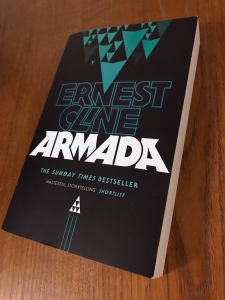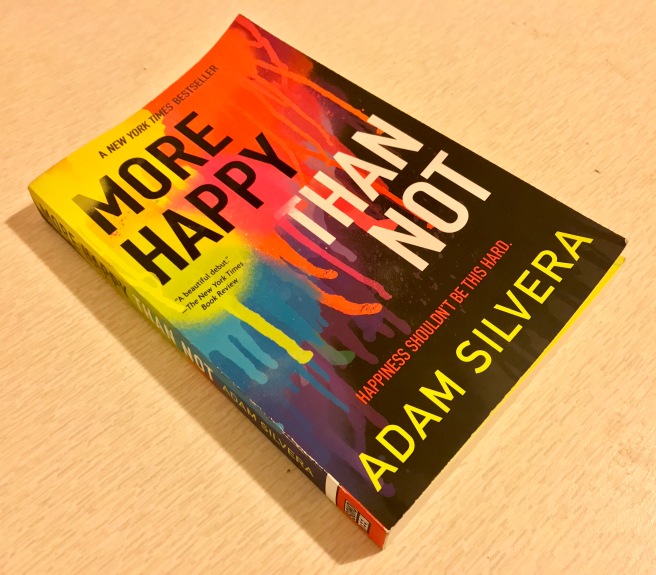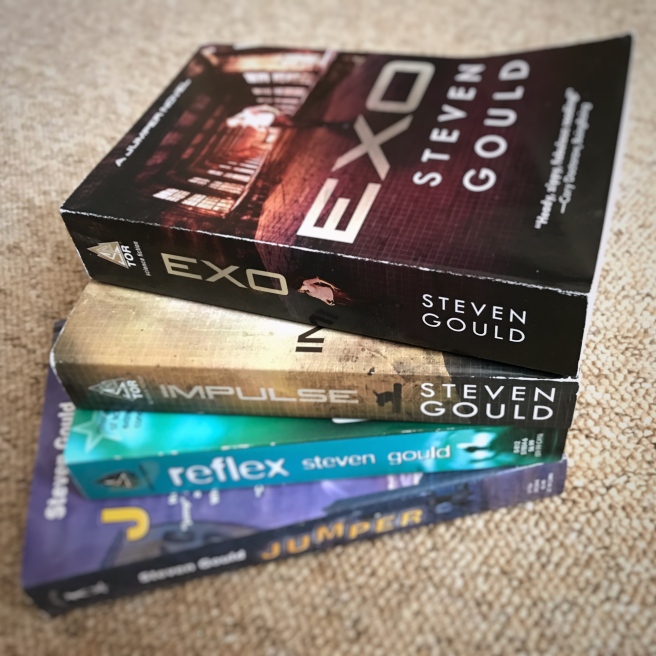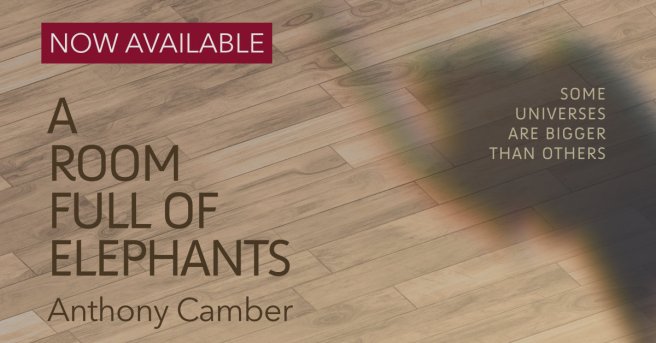I think I’ve devoured more books in 2023 than in any other year. Almost all queer YA: a genre that didn’t even come close to existing when I most needed it.
With two hours until 2024 smacks us in the chops, I know I won’t finish reading my current book so it’s time to post my 2023 reviews.
If you just want the extremes:
- Favourite: No contest. Books 37/38, Like Real People Do and Like You’ve Nothing Left to Prove. I’m still thinking about the characters. I want more.
- Least favourite: On balance book 20, Arthur and Teddy are Coming Out. Marketed at adults, but seemingly written for young teens.
- Best surprise: book 15, Gwen and Art Are Not in Love. I wasn’t expecting it to be as funny as it is.
- Worst surprise: I can’t get past book 1, Timberdark. Such a disappointing ending.
- Greatest eye roll: book 39, Never Been Kissed. The word “ovular”.
- Most frustrating: book 13, Straight Expectations, which takes 5 chapters to start.
- Most in need of another proofread: book 46, Donick Walsh and the Reset-Button. Would’ve been a 5 without the problems.
These reviews were all originally written to fit into a single tweet, with the exception of book 46, where I detail some of the irritating editorial problems in the text I read.
1 Timberdark 3½/5
The sequel to Wranglestone was going so well – interesting mystery, character development, new scenery – and then we got to the ending. I… I hated the ending. Desperately disappointing, preachy nonsense. What a shame.
2 Less 4/5
Won the 2018 Pulitzer Prize for fiction. Engaging, funny, gaily melancholic, bursting with a thousand tiny details and dry little asides. Rattled through it quicker than I expected – always a good sign.
3 This Much is True 5/5
Miriam Margolyes’ autobiography. It’s all there. All the stories the lawyers let her publish. Honest, forthright, revealing. Several pauses to pick my jaw off the floor. National treasure.
4 A Boy Worth Knowing 4/5
Boy meets boy, boy falls for boy, boy’s dead grandmother and sundry other ghosts offer sage advice/get in the way. It’s a tale as old as time. Sweetly predictable with a paranormal twist. Needed a bit more oooooomph.
5 Project Hail Mary 4/5
Weir tells these stories well, spraying buckets of accurate/plausible science at high-stakes problems. The before, told in flashback, reveals the present in satisfying chunks. The star of the show is… not the narrator. ♫♬♩
6 Husband Material 5/5
Sequel to Boyfriend Material and as good if not better. Effortlessly funny, distinctive characters, full of truths. Could and should be adapted for TV (maybe after book 3?).
7 Boy Like Me 5/5
The latest from @simonjamesgreen – one of my favourite queer authors – is quirky, personal, relevant and important. Everything I felt as a teen is here. Everything I feared. Wanted. A vital history lesson. All hail librarians.
8 Afterglow 4/5
Sequel to Golden Boys, here the boys navigate their final school year. Great character development. Stamper does well with four narratives but each boy sounds the same, making character switches sometimes a struggle.
9 The King is Dead 4/5
Unlikely, enjoyable mystery surrounding Britain’s first black king – a gay teen. Lovely twirly-moustachioed villain, a gentleman of His Majesty’s Press. Twist upon twist until the end. Plus a bit of romance.
10 The First to Die at the End 4½/5
Silvera’s prequel to “They Both Die at the End” doesn’t disappoint. Multiple narratives, converging and diverging, covering the End Day of – someone. Or someones? The message: life is short. Make the most of it.
11 The New Life 4/5
Crewe’s first, beautifully written novel looks at life for “inverts” amid faltering steps towards equality in 1890s London. Inspired by real people and against the backdrop of Wilde’s trial, don’t expect a happy ending.
12 Amongst Our Weapons 4½/5
Rivers of London #9: as enjoyable and readable as its predecessors, continuing to broaden and deepen the mythos of the series in satisfying ways. Bonus points this time for extra queerness.
13 Straight Expectations 3½/5
A Tale of Two Timelines (sorry). Enjoyable, after a 5-chapter setup. Pet hate: people constantly using others’ names in speech. Amusingly honest about teenage life, games, and obsessions. Diverse, camp, sweet, predictable.
14 Lose You to Find Me 5/5
@WriterikJB’s second novel doesn’t disappoint. The usual tropes – but also surprises, tenderness, and genuinely heartfelt moments. Plus complex, 3D characters navigating life’s troubles in believable ways.
15 Gwen and Art Are Not in Love 4½/5
Camelot, but not as we know it. Terrifically funny medieval/modern fantasy romp. (Can I say armour-amour? Can I? No. OK. Sorry.) More blood and less magic than I expected. Art is Hemsworth C in my head.
16 Broken Hearts & Zombie Parts 3½/5
Unsure at first: title and cover didn’t work for me. Enjoyed the story, predictable as it was. One eye-rollingly implausible scene. One procedure… glossed over, somewhat, reasonably.
17 Boy Meets Ghoul 3½/5
The trouble with romance sequels is: where does the couple go next? Ghoul’s attempt to solve this dilemma falls short. Plenty of junior humour, but likely too junior, and not enough romance.
18 Fake Dates and Mooncakes 4/5
Enjoyable queer teen romance with a sideline in history and cookery. Unexpectedly not so much about fake dates and mooncakes as about the haves vs the have-nots. Needed a few more surprises.
19 Young Mungo 4½/5
Writer’s hat on: a powerful, devastating coming-of-age story in 1980s Glasgow that pulls no punches
Reader’s hat on: blimey, it’s grim. Violence, alcoholism, abuse. Glad when it was over.
20 Arthur and Teddy are Coming Out 3/5
Disappointing. Good premise, poorly executed: unrealistic dialogue, telegraphed plot development, pedestrian writing. Reads like a very young YA retargeted older with a bit of swearing.
21 Something Fabulous 4/5
I’ll probably work my way steadily though all of Alexis Hall’s books. This is a splendid, witty Regency historical, the full-on queer counterpoint to the parade of Bridgerton corsets.
22 Fabulosa! The Story of Polari, Britain’s Secret Gay Language 4/5
Non-fiction for a change. Fascinating, well-written history of the usage and evolution of the slang/cant that gave the English language words such as butch, camp, mince, ogle, and scarper.
23 The Darkness Outside Us 4½/5
Difficult to say much about this book without spoiling it. High concept, high stakes, surprising. Skilfully avoids [spoiler spoiler spoiler] and manages to keep the pace up throughout.
24 Unexpecting 3½/5
Great premise, frustrating and unsatisfying execution. Protagonist is not that likeable. The question that would’ve been asked on day 1 isn’t asked for approx forever. Rampant plot telegraphy.
25 Sea of Tranquility 4/5
Immensely readable and satisfying story of the past, present, and future of one man’s life, how his timeline intersects with others’, and the consequences. Unexpected Covid parallels, queerness.
26 If You Change Your Mind 4/5
Alternating story with superhero screenplay is original if ultimately ho-hum. Enjoyably pink-tinted view of a Florida coastal town, barely a straight boy in sight. Everyone’s ador[k]able. Surprises, tension. Great.
27 Code of Conduct: Why We Need to Fix Parliament – and How to Do It 4/5
Bryant’s an expert on Westminster process and chicanery, and describes well how broken the system is. Perhaps a little too calmly and soberly.
28 Overemotional 4/5
The blurb put me off. Didn’t want to read it. But it grew on me, and went to some interesting places – darker than I was expecting. Many narrators: fun characters who I expect we’ll see more of.
29 We Could Be So Good 5/5
New York, 1959: more queer than you might think. Beautiful, sensitive slow-burner of a romance told from alternating perspectives. Complex characters, simple story. Takes its time, and all the better for it.
30 Ryan and Avery 4/5
The always-reliable Levithan delivers a burgeoning queer teen relationship shown over ten dates, out of sequence. Sweet and ultimately hopeful, if slight. Marred by many formatting snafus on my Kindle copy.
31 A Little Bit Country 4/5
Ostensibly about country music and two teens finding each other in not-Dollywood, in truth this is a story about families, choices, truths, and consequences. Enjoyable, sometimes surprising, bit over-angsty in parts.
32 Snow Boys 5/5
Not without faults: scenes too often start then jump into flashback, which can confuse. The Irish setting is refreshing and real, and the story doesn’t flinch from the bad times of family life. Love a geek/jock story. Great cover.
33 Something Spectacular 4/5
The sequel to Something Fabulous shifts focus to a minor character from that book. Funny, sexy, surprisingly touching. The implausibly queer Regency setting is terrific: I’d love a TV adaptation.
34 Café Con Lychee 3½/5
Core idea: sound. Execution: not great. One protag is unlikeable for almost half the book. References to “scrimmages” in soccer suggest insufficent research. So much just… fizzles out. Some surprises would’ve helped.
[Editor’s note: I’ve since discovered that scrimmage is actually used, although I’ve never heard it in the UK. The insufficient research was therefore mine, not the author’s.]
35 Sprout 5/5
From the first chapter I knew I’d love this book. It has a VOICE. Funny, sad, tender, honest, playful, complex, knowing. It does things differently: this ain’t your standard high school boy-meets-boy troperama.
36 The Magnificent Sons 4/5
Two brothers: one very out, one very not. A story about the dysfunction that can paralyse relationships with friends and family when you spend too much time in your head. A lot to like here. Some uncomfortable familiarities.
37/38 Like Real People Do/Like You’ve Nothing Left to Prove 5/5
[Two books, reviewed as one]
Bam. Chapter 1, I’m totally invested in these characters. Thinking about them when I’m not reading. Forcing myself to read more slowly. Emotionally frazzled and wet-eyed in coffee shops.
You know how dreams can infect the day with intangible, lingering emotions? That’s how I felt with this story. Washing up, and there’s a faraway ache slipping between memories, resolving at last to a scene. Ugh. Bereft now.
39 Never Been Kissed 3/5
Too many eye rolls in this one. Interruptions at crucial moments. Clunky writing, with an overuse of adjectives telling not showing. The word “ovular” (no, it’s not a synonym for “oval”). Characters mostly unburdened by depth.
40 Whatever. 4/5
A story about the (mostly internal) struggle for acceptance. A complex, rounded protagonist – among a rich mix of secondaries – who isn’t a high flyer, and isn’t happy. Lots to like. Needed a touch less angst, a touch more progression.
41 I Like Me Better 4/5
Pleasant enough, but follows a very predictable course and lacks the spark necessary to elevate the story. A couple of sweet scenes offsetting some odd ones. Throwaway characters that could’ve done more.
42 Peter Cabot Gets Lost 4½/5
A delightful slice of 1960 queer USA. Almost entirely a two-hander, alternating focus, for a cross-country road trip. Lovely character piece and homage to lost times. A little short, a lot sexy.
43 Icebreaker 5/5
Looks like I have a thing for romance novels about closeted queer ice hockey players. 15yo me would be astonished. I wish he could’ve read them. This one tackles mental health sensitively and honestly.
44 Charming Young Man 3½/5
Based on a true story, this is evocative and full of detail but ultimately unsatisfying. I think I’d have quickened the pace and expanded the epilogue into the third act, or maybe even the second half.
45 All the Right Notes 4/5
Frustrating. Alternating past/present means today’s characters can’t reveal yesterday’s plot. Protagonist plagued with interruptitis (in and out), a pet hate of mine. Saved by a deeply moving ending.
46 Donick Walsh and the Reset-Button 4/5
Loved the story: Nick tries to change his life and make amends for his bullying past, while his former best friend Michael is suspicious. Needs a light trim, and a heavy proof: many errors in basic grammar.
Some problems I spotted:
- Wrongly hyphenating compound nouns like “reset-button” – should be “reset button”
- Using “councilor” when “counselor” is more appropriate
- Mixing up “you’re” and “your”, and possibly “their”/”there”/”they’re”
- Using “breath” instead of “breathe”
- Using “blonde” instead of “blond” (common, probably becoming OK)
47 Ten Things That Never Happened 4/5
Another Alexis Hall romcom, this time a contemporary story involving a bed/bathroom superstore, amnesia, jobs on the line, Christmas, and infinite family members. An easy read, effortlessly funny, but it didn’t grab me.
48 Luke and Billy Finally Get a Clue 4/5
1953, and two baseball players staying in an isolated house realise they have feelings for each other. Cat Sebastian writes lovely character pieces like this: but it was over far too quickly.


 I confess I’ve struggled to articulate my thoughts on Ernest Cline’s
I confess I’ve struggled to articulate my thoughts on Ernest Cline’s 

